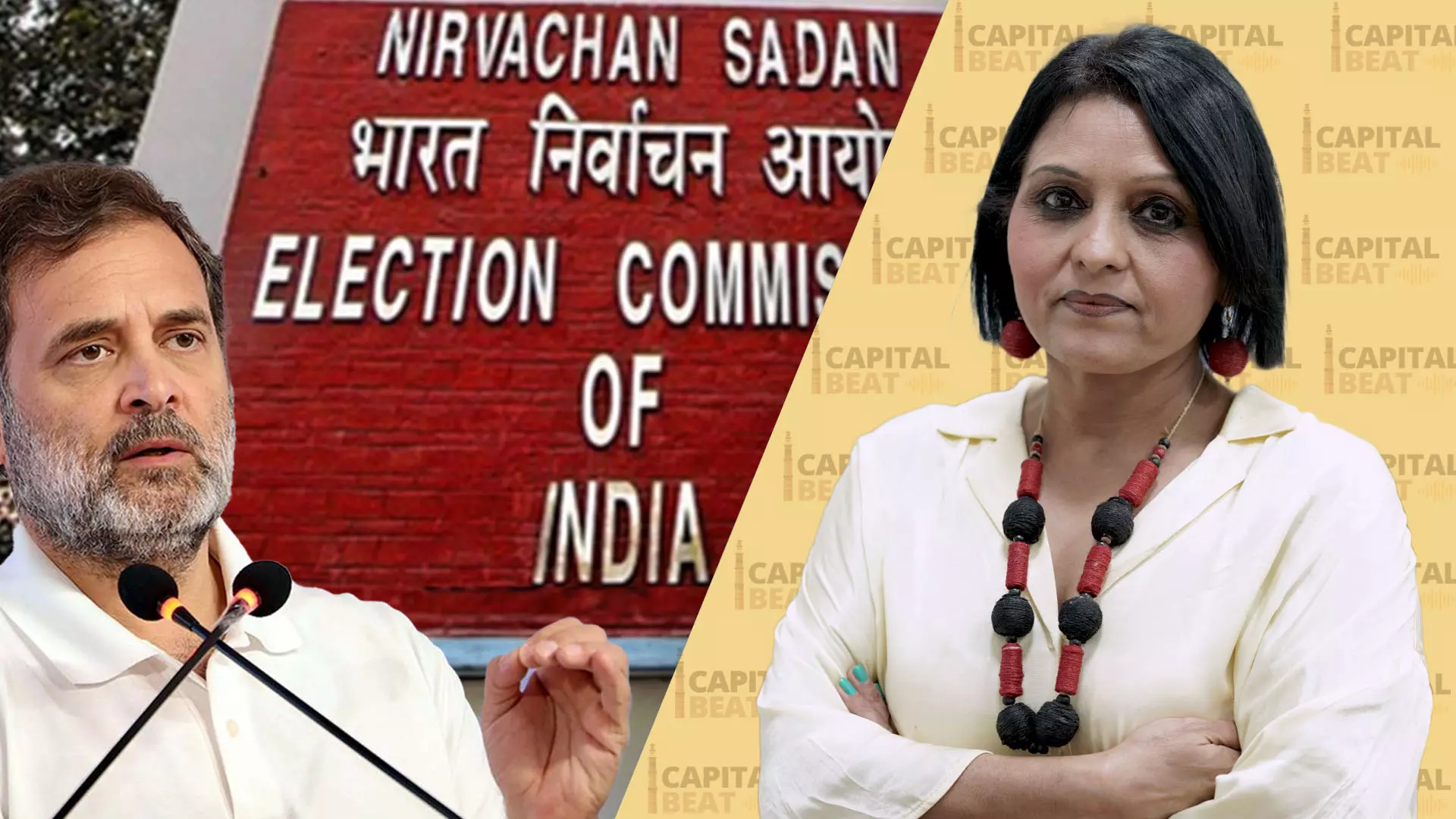
Rahul alleges mass deletions in Bihar electoral roll: What are the repercussions?
Rahul Gandhi calls EC complicit in vote fraud to benefit BJP — will this be a turning point in Bihar? Watch The Federal debate with an expert panel

Congress leader Rahul Gandhi has made explosive allegations against the Election Commission of India (ECI), claiming to possess "open and shut proof" of electoral fraud benefiting the BJP. The accusations come ahead of key state elections and amid controversy over voter deletions in Bihar.
Election data scientist Pyare Lal Garg, Congress spokesperson Lavanya Ballal Jain, and media analyst Siddharth Sharma analyse the claims in the latest edition of Capital Beat.
At the heart of Rahul's allegations are claims of systematic discrepancies in two Lok Sabha constituencies in Karnataka. The Congress leader asserts his investigation uncovered troubling patterns in voter rolls after the ECI allegedly refused to provide digital copies of voter lists. Party workers reportedly had to manually digitize physical records, uncovering what they claim are duplicate entries and missing legitimate voters.
Bihar's electoral roll revision faces scrutiny
Parallel to the Karnataka allegations, Bihar's Special Intensive Revision (SIR) exercise has come under fire for allegedly purging over 94 lakh voters - far exceeding the ECI's official figure of 65 lakh deletions. Opposition analysis suggests these deletions disproportionately affect Muslim-majority and SC/ST-dominated constituencies, with voters being categorized as "probably dead" or "permanently shifted" without proper documentation.
Also Read: Is EC’s Bihar SIR a ploy to unseat Nitish, put BJP in the saddle?
The ECI has dismissed all allegations as "baseless," issuing a statement directing officials to ignore what it called "irresponsible statements." However, this standard denial has done little to address mounting concerns about transparency. The commission's refusal to disclose Form 11 records detailing Bihar's deletions has only fueled skepticism among opposition parties and electoral watchdogs.
Legal challenges
The Supreme Court is set to hear petitions challenging Bihar's SIR on August 12-13, with Justice Sanjiv Khanna previously indicating the court would intervene if mass exclusions were verified. Legal experts note this case could set important precedents for electoral transparency, particularly regarding the ECI's voter verification processes and documentation requirements.
These allegations don't exist in isolation. Similar concerns about voter list manipulation emerged during:
The 2023 Karnataka assembly elections
The 2022 Uttar Pradesh local body polls
The 2020 Delhi assembly elections
In each case, Opposition parties documented instances of missing voters, duplicate entries, and questionable categorization of electors, though none resulted in substantive institutional reforms.
The political stakes
With crucial state elections approaching in Bihar and elsewhere, the controversy carries significant political implications. Political analysts suggest the Congress hopes to use these allegations to:
Mobilize opposition unity
Shift focus from internal party challenges
Build momentum ahead of state polls
Pressure the ECI for greater transparency
Expert analysis reveals systemic concerns
Election data scientist Dr. Pyare Lal Garg highlights troubling patterns in the ECI's methodology: "Between 2020-2024, Bihar's voter count inexplicably surged by 1 crore before these mass deletions. The commission's shifting categorization of voters - from 'probably dead' to simply 'dead' without documentation - raises serious procedural questions."
Road ahead
As the August 5 protest in Bengaluru approaches, all eyes will be on what evidence the Congress presents and how the ECI responds. The coming weeks could prove pivotal for India's electoral integrity, with potential outcomes including:
Supreme Court-mandated reforms
Opposition-led electoral process audits
Increased public scrutiny of voter list revisions
Possible legislative changes to election oversight
The controversy has already sparked renewed debate about the need for an independent mechanism to oversee the ECI's functioning, with some constitutional experts suggesting parliamentary oversight might be necessary to restore public confidence in the electoral process.
The content above has been transcribed from video using a fine-tuned AI model. To ensure accuracy, quality, and editorial integrity, we employ a Human-In-The-Loop (HITL) process. While AI assists in creating the initial draft, our experienced editorial team carefully reviews, edits, and refines the content before publication. At The Federal, we combine the efficiency of AI with the expertise of human editors to deliver reliable and insightful journalism.

